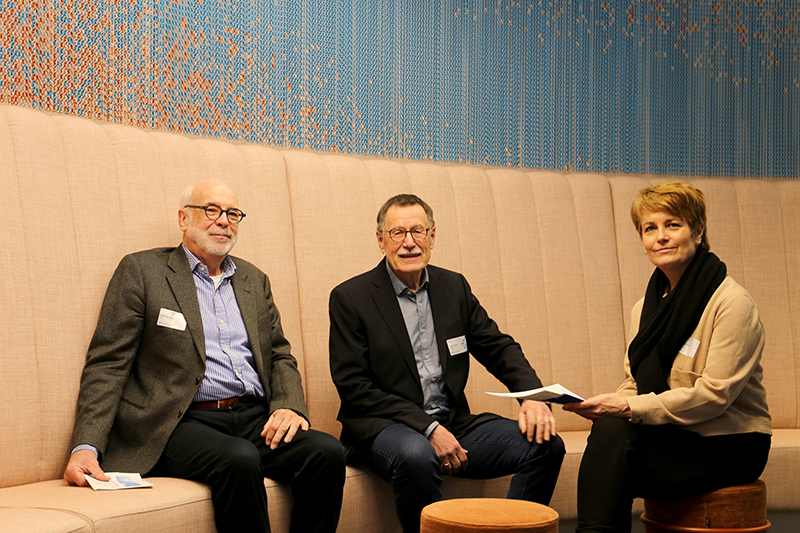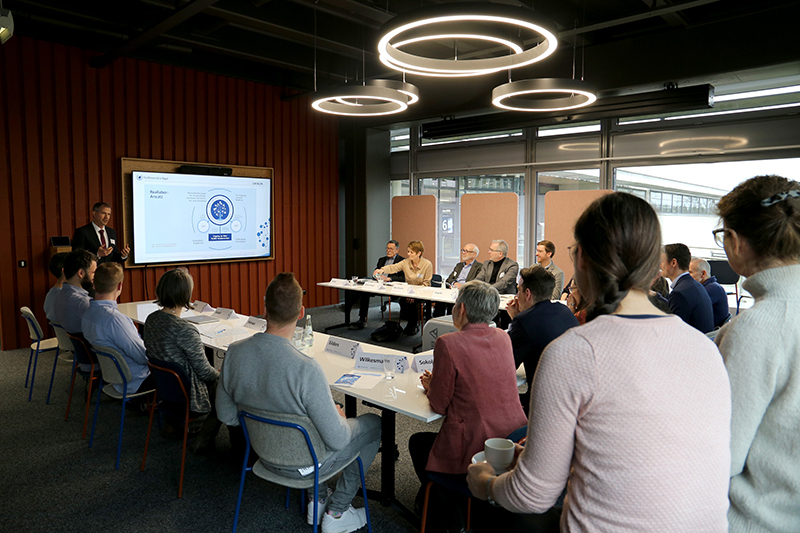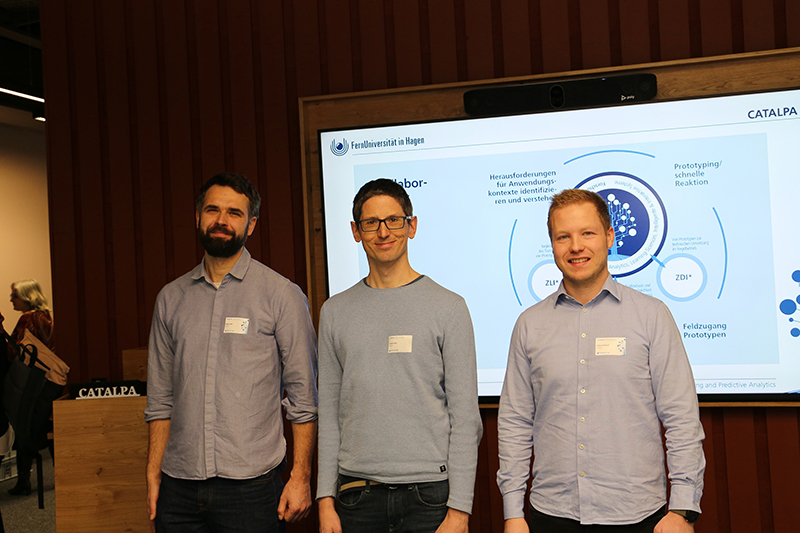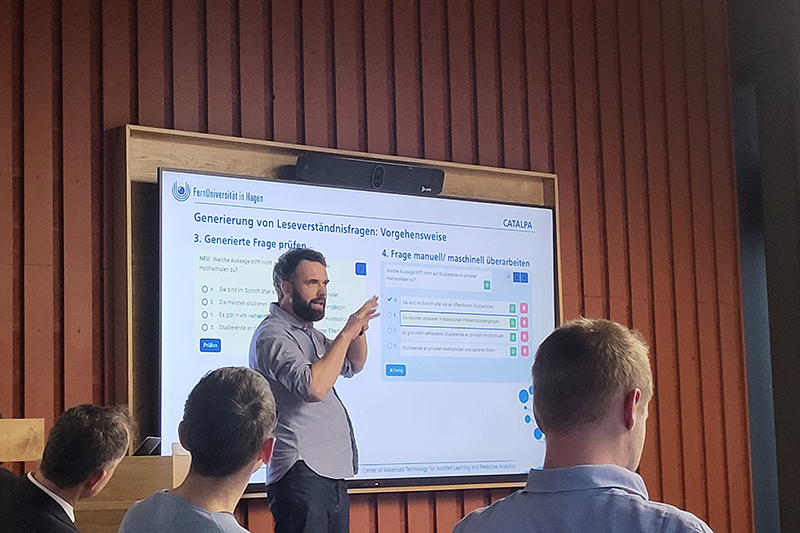News
Improving teaching and learning at universities with AI research
[31.01.2025]Time savings for lecturers, tailored support for students: CATALPA - Center of Advanced Technology for Assisted Learning and Predictive Analytics - at the FernUniversität in Hagen has now presented AI-based prototypes that can significantly improve everyday teaching and learning at the university.
 Photo: FernUniversität/CATALPA
Photo: FernUniversität/CATALPA
Members of the cross-institutional task force "Artificial Intelligence in Education" (German) with representatives from the State Chancellery of North Rhine-Westphalia, the Ministry of Culture and Science of North Rhine-Westphalia, and educational practitioners attended the on-site visit.
"Thanks to our interdisciplinary expertise, we have developed scalable applications that have already been integrated into teaching in various contexts," says the research center's scientific director, Prof. Dr. Dr. Friedrich W. Hesse.
The researchers want to provide scientific insights into how AI can be used effectively in education. They are currently exploring the possibilities of self-hosted open-source AI models for the teaching-learning context.
Our living lab approach allows us to respond quickly to new technologies, provide lecturers with access to them, and explore their use in practice with a large number of cases.
Prof. Dr. Dr. Friedrich W. Hesse
AI Support for Faculty and Students
 Photo: FernUniversität/CATALPA
Photo: FernUniversität/CATALPA
With FLEXI - short for FernUni LLM Experimental Infrastructure - lecturers and students have access to several open source AI models since the current semester. Similar to ChatGPT or other well-known commercial AI models, they can summarize texts, reformulate them or generate new ones from keywords. In contrast to commercial offerings, the models on the self-hosted server not only offer privacy protection for users, but also reproducibility of results - an important prerequisite for research. The service is directly linked to the Moodle learning platform, a learning management system used at numerous universities in Germany.
Lecturers can use the applications developed by CATALPA, for example, to generate multiple-choice questions on learning content. Students can receive individualized, highly informative feedback on their learning performance, for example, when they have to solve free-text tasks. "Our living lab approach allows us to respond quickly to new technologies, provide lecturers with access to them, and explore their use in practice with a large number of cases," explains Hesse. For this purpose, CATALPA has an extensive database at its disposal at the FernUniversität in Hagen, which has around 72,500 digital students.
Improving educational opportunities
 Photo: FernUniversität/CATALPA
Photo: FernUniversität/CATALPA
Computational linguist Prof. Dr. Torsten Zesch, computer scientist Dr. Niels Seidel and business data processing specialist Michael Hanses, who work hand in hand with experts from psychology, educational science and organizational sociology at CATALPA, presented positive results of the new approaches at the event in the Immersive Collaboration Hub (ICH) of the FernUniversität: Lecturers, for example, appreciate the time saved by the new AI offerings. Students find the personalized feedback a great help. All of the applications presented can be transferred to other subject areas and target groups, making them highly promising for other universities, schools and further education institutions. "It is precisely the heterogeneity of our students that makes it possible to gain scientific insights into learners with very different prerequisites and backgrounds. CATALPA can thus show how the targeted use of AI can make a significant contribution to improving the educational opportunities of people with very different learning biographies," says the Vice President of the FernUniversität in Hagen, Prof. Dr. Stefan Stürmer.
Cross-institutional exchange
"Thank you for the invitation - the number of participants shows a great interest in CATALPA's approaches and results," said Kordula Attermeyer, Head of the Digital Society Unit at the NRW State Chancellery, at the on-site meeting. "This strengthens the cross-institutional exchange, which was also NRW's approach in the 'AI in Education' task force."
The "AI in Education" task force had already presented the state government with a recommendation paper (German) in the summer on how to design a responsible and sustainable approach to artificial intelligence in education. This was initiated and coordinated by the CAIS - Center for Advanced Internet Studies - with CAIS founding director Prof. Dr. Michael Baurmann: "Networks of educational practice and science are enormously important for our state's AI expertise," he says. "They should be consolidated and opened up through regular training courses in order to promote the reflective and competent integration of AI into teaching and learning processes along the education chain."


